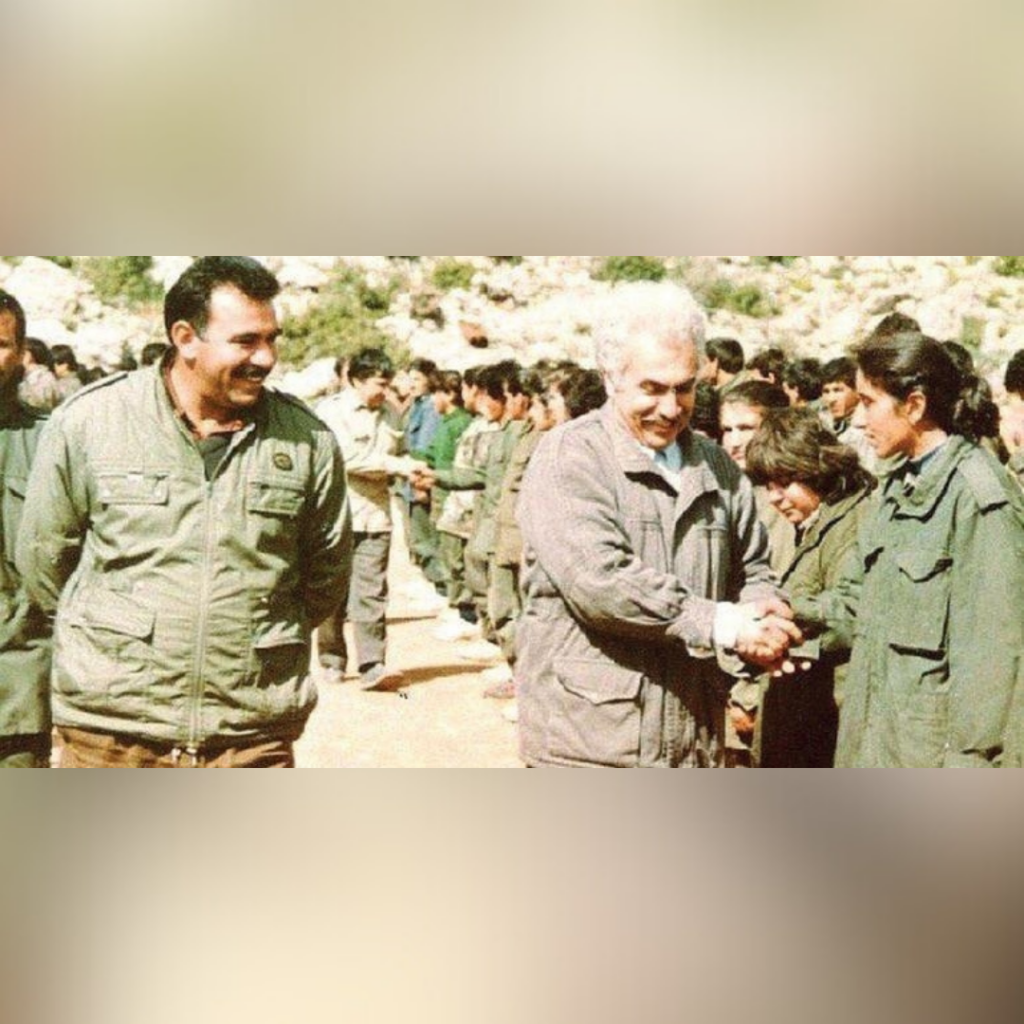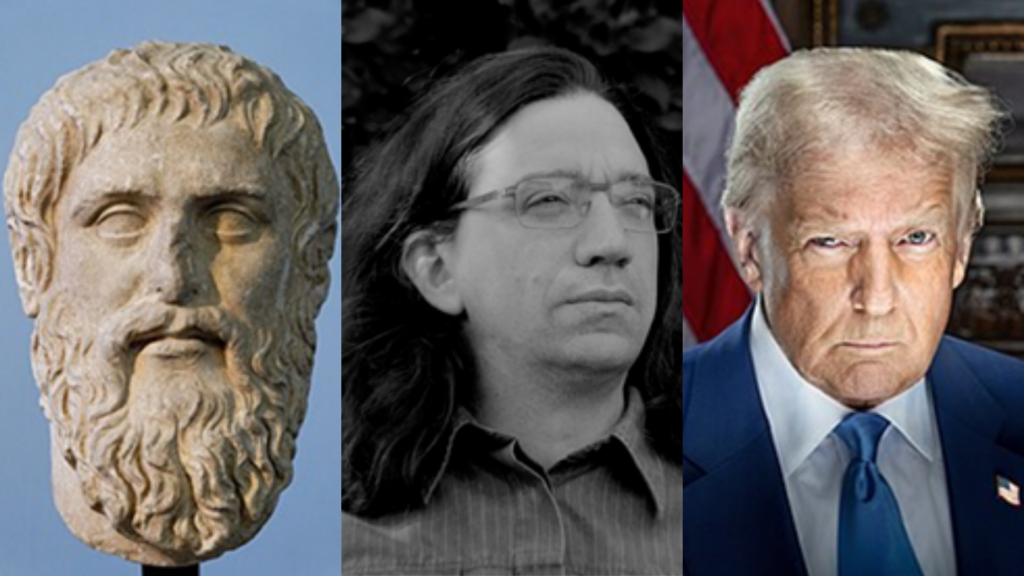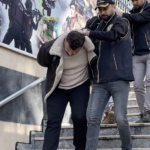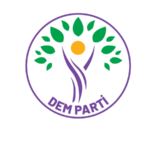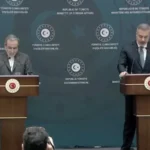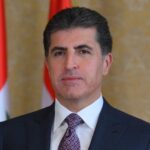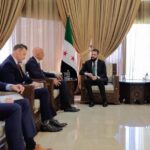Halil Berktay
The Turkish original of this article was published as O son, üçüncü bildiriye ben de imza atardım on 19th January 2016.
[19th January 2016] We have come to be surrounded by declarations or petitions on all sides. The first was the “We will not be a party to this crime” statement, signed by 1128 academics, that has created such an uproar. I have already written and explained why I think it is all wrong and am wholly against it. Later, more than a hundred people from among the first group put their names to another short memorandum, comprising four points, that was made public by Baskın Oran. Let’s call this the second declaration. In the face of public pressure and denouncements, it appears to have been written to show that they too are against the Çınar attack [by the PKK on the local police department that resulted in the deaths of several women and children]. But in certain ways, it is much worse than the first. That initial statement by 1128 academics said nothing about the PKK’s war; it simply walked around it and ignored it completely. This second one, with Baskın Oran as its spokesperson, does touch on the issue — only to defend it by insinuating that it constitutes some kind of “just violence.” In its second paragraph, an attempt is made to explain the PKK’s armed urban occupations not as a current policy choice, but through arguments of historical victimization, that is, the conviction that whatever an oppressed and exploited nation does (or whatever is done in such a nation’s name) is right and just: “What is called the ditches and barricades affair is not the cause of the current chaos. They themselves are the consequence of the various promises made to the Kurds and then broken since 1919, the disappointment fed by the recent overturning of the negotiation table, and the suffocating oppression of the Kurds that has continued to this day, resulting in the prevailing circumstances.”
These sentences reflect a historical over-determinism which completely neglects the capacity of actually living people, here and now, to exercise their freedom of choice one way or the other, for war or against war. The dead weight of the past weighs so heavily on the present that there is no way out. What can they possibly do if this is what their history dictates, what their culture orders them to do? The fourth and last paragraph is even more horrifying. There is a little phrase about how “the PKK, on the other hand, while struggling against the policy of exterminating the Kurds, should not slip into blind terror and harm civilians.” As I have already said, they are trying to put up their guard against accusations of hypocrisy and double standards in the wake of the Çınar attack. There is a traditional Turkish saying which is ethnically prejudiced, though I will quote it in a very restricted sense: “The chivalrous gypsy begins to confess all his thefts and burglaries by way of boasting about his heroism.” Pretty much the same is true of this second statement. Thus we learn that (a) there is a “policy of exterminating the Kurds”; (b) it is against this that the PKK is fighting — which means that the KCK leadership itself must have lied to us over July 1-21 when they announced (and we believed them) that they were declaring a “new people’s revolutionary war” because civilian politics as represented by the HDP had failed to make the most of a new set of opportunities, which was exactly what they wrote at the time. But how naïve we were to take them at their word; only now do we learn, through Baskın Oran and his friends, of the existence of a “policy of exterminating the Kurds,” which not even the PKK has claimed so far. And (c) henceforth let us not lump all terror together, for it seems that only its “blind terror” sub-category harms civilians, so that just like good and bad cholesterol, there now seem to be two types of terror, namely “blind terror” and “seeing terror” or “not-so-blind terror”; as long as it does not harm civilians, this other terror (that picks its targets well?!) we should perhaps not be critical of.
This is one side or extreme of the insanity that I was writing about in my last article (Kipling ve aklını kaçırmamak, 17th January 2016; Eng. tr. About Kipling, and not losing my head, 24th January 2016). At the other end is the totalizing logic of some of the press and the all-out attack they have launched on the freedom of expression in principle. Of course it didn’t really begin with the press, but with some over-indignant pronouncements by top level statesmen and politicians. But then the pro-government media also jumped in, as did public prosecutors and the Board of Higher Education, so that for some time there seemed to be developing a veritable witch hunt and wave of psychological terror. For several days on end, the daily Sabah, for example, kept highlighting how at various provincial towns and universities individuals who had signed the first statement were being taken into custody, replete with photographs of SWAT-like police teams gathering outside their door, and details of the criminal or administrative procedures launched against them, including threats and promises of “absolutely” charging them because, as some rectors publicly put it, “when it is a question of the state there is no room for the freedom of expression.” Sabah published all this not in order to call attention to so many shameful acts, but in order to praise them — by way of holding them up as examples of patriotic righteousness, listing them from 1 to 20 as if to say: “these are your just rewards, this is what you get” (though its listings did reflect, inadvertently, that virtually all the older, much more established and balanced institutions of higher education, whether public or private, were neither resorting to any such methods nor having anything to do with all the hysteria).
Now, on the other hand, we have a third petition followed by a fourth statement. What I call the third text has been signed by 610 academics and made public by Ayşe Buğra. It is quite unlike the first statement with 1128 signatures. The majority of the 610 are not among the 1128. This is what they have to say: “We, the undersigned academics, uphold the principle of freedom of thought and expression, and believe that this principle is the cornerstone of academic life. On this basis, and irrespective of our personal opinions about the current conflict in the country, we find the reaction of the political establishment and the Board of Higher Education to the ‘We will not be a party to this crime’ declaration signed by many academics to be wrong and and also cause for anxiety. There can be no democracy without freedom of expression. It is the duty of the university and the academic to share whatever opinions s/he may have adopted through reason and conscience with the rest of his/her society. Criticizing any opinion is a democratic quality whereas penalizing whoever may have expressed it is an authoritarian quality. Efforts on the part of the ruling power to penalize academics for the opinions they express about issues concerning their country is a blow to academic freedom. Above all, such blows impede social development. The greatest harm to a country’s democracy is not to express opinions but to suppress them.”
This was followed by what I have called a fourth statement along the same lines, this time by the Helsinki Citizens Assembly. This, too, I am quoting in full:
The academics’ declaration comes under freedom of expression
“If all mankind minus one, were of one opinion, and only one person were of the contrary opinion, mankind would be no more justified in silencing that one person, than he, if he had the power, would be justified in silencing mankind… the peculiar evil of silencing the expression of an opinion is, that it is robbing the human race; posterity as well as the existing generation; those who dissent from the opinion, still more than those who hold it.” — John Stuart Mill.
Beyond expressing agreement or disagreement, the debates following the ‘We will not be a party to this crime’ declaration have turned into a lynching campaign against the 1128 academics, from various universities in Turkey and abroad, who signed it. In turn, this has further escalated the already rapid polarization that is becoming cause for worry all across society.
Just as the authors and signatories of this declaration expressed their opinions in writing, there could also have been some very heated discussion, without any threats or insults, of the text by those opposed to it, so that, as has happened with many issues, a milieu of unconstrained criticism would have come to prevail.
At the end of the day, the signatories have done nothing other than express an opinion. After all, they do have the right to express even a biased or a wholly one-sided opinion.
They may not have expressed or even ignored some of the facts. The theses they advance, moreover, may actually be shocking, disturbing, or counterfactual.
In the face of opinions you don’t like or which you assert to be wrong, correct, useful and acceptable behavior is not to rage at and react to them with threats, insults, or criminal accusations, but to try to refute them by coming up with other and opposed ideas. The freedom to think and express anything that does not entail any violence, threats or insulst is a basic right, and is under the protection of various international and national legal texts as well as EHRC case-laws. No power or authority is capable of ignoring this.
The opinions set out in this text, too, have to be considered and evaluated as coming under the freedom of thought and expression.
As you can see, unlike the text signed by 1128 academics, there is no statement of any political views in these third and fourth statements. Instead, regardless of whether they agree or disagree with the 1128, there is only a defense of the principle of freedom of thought. Nevertheless, once more the daily Sabah (which, let me emphasize, I am taking only as an example) saw fit to headline it as “Support from 610 academics for the pro-PKK academics.” This is what I call totalizing logic. According to such reasoning, the 1128 signatories cannot have any rights or liberties. More generally, there can be no such thing as upholding democracy and human rights for everyone, regardless of their ideo-political stance (and even their position before the law). You cannot, for example, oppose people being tortured if they have belonged to illegal organizations (as was frequently the case after the 12th March 1971 or 12th September 1980 military interventions, and as I too have personally experienced), because somebody can immediately sit down to dash off an article accusing you of providing “Support to terrorists or anarchists [so that they are not tortured].” As Vahap Coşkun has pointed out in a 15th January Serbestiyet article, we are then left with the “freedom” to express only “acceptable” opinions.
Just today [19th January], Gürbüz Özaltınlı, too, has put it so well (Toplumsal tecrübe ve özgürlükler [The implications of social experience for basic rights and liberties]): “Yes, we are not on good terms with some concepts. For these basic concepts have not been thought and refined through our own social struggles, the bitter lessons we have had to absorb; they have not been appropriated over many generations and digested, internalized across our society.” I for my part have repeatedly felt the need to underline that the PKK is one thing, democracy is another. To be against this or that opinion is one thing; to defend the freedom of thought of those people, too, is another. We have to grasp and to absorb this difference. It was the errors of the government that led to this libertarian reaction. This fourth statement by the Helsinki Citizens Assembly is also good; I like it, I agree with it, I support it. But what is really very good is the third statement. It is just as it should be. Congratulations to whoever wrote it. 610 colleagues of mine have signed it. I happen to radically differ with some among them over the first declaration. That is also entirely normal. I never saw the third declaration. If I had, I too would have signed it.
Yazıyı beğendiysen, patronumuz olur musun?
Evet, çok ciddi bir teklif bu. Patronumuz yok. Sahibimiz kar amacı gütmeyen bir dernek. Bizi okuyorsan, memnunsan ve devam etmesini istiyorsan, artık boş olan patron koltuğuna geçmen lazım.
Serbestiyet; Türkiye'nin gri alanı. Siyah ve beyazlar içinde bu gri alanı korumalıyız. Herkese bir gün gri alanlar lazım olur.






